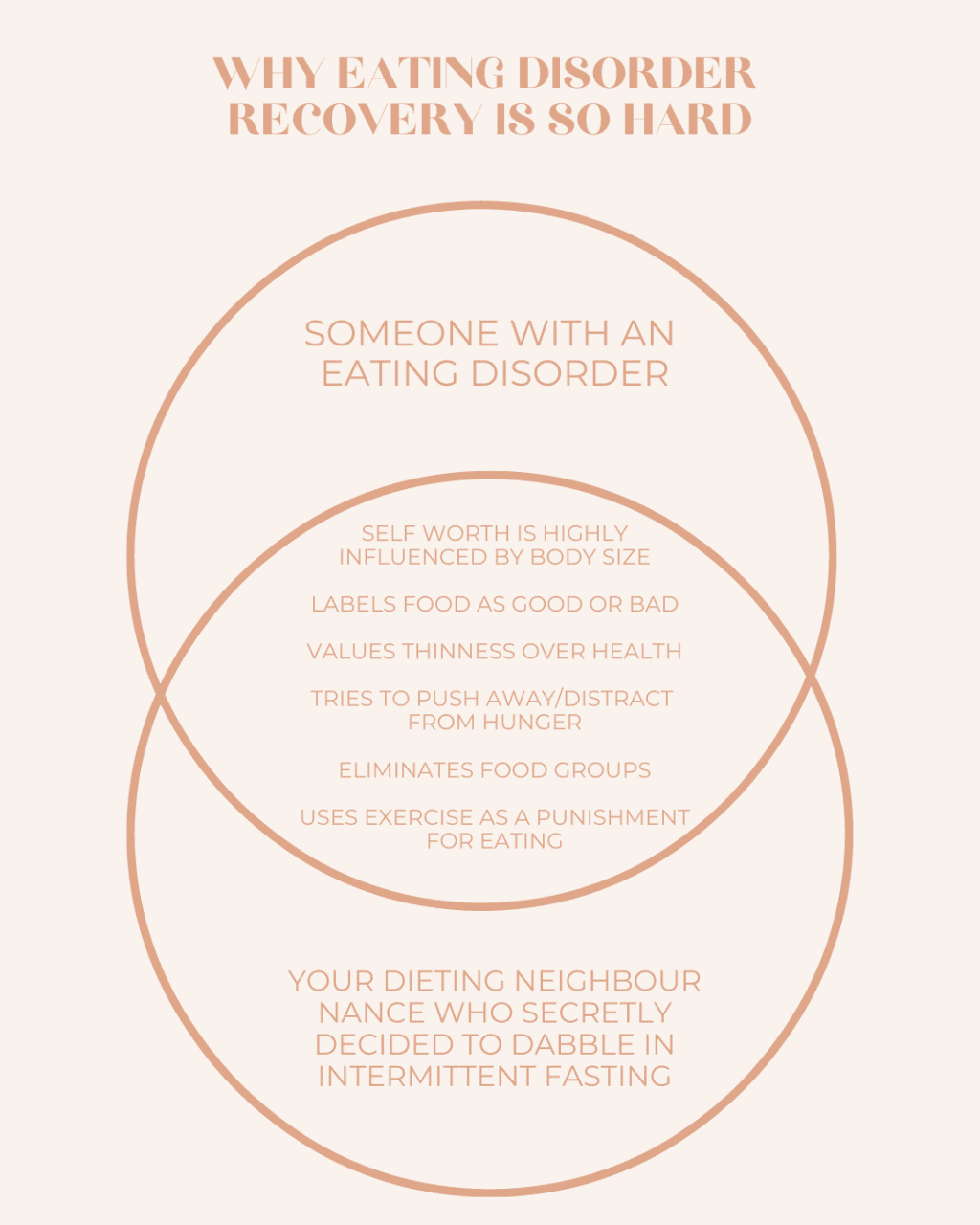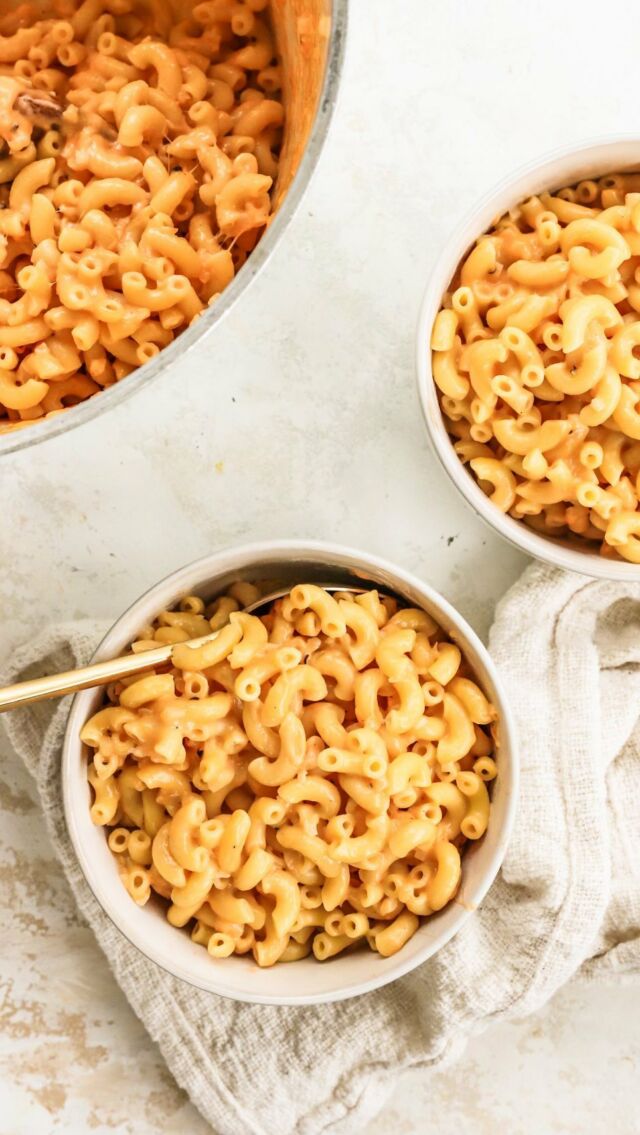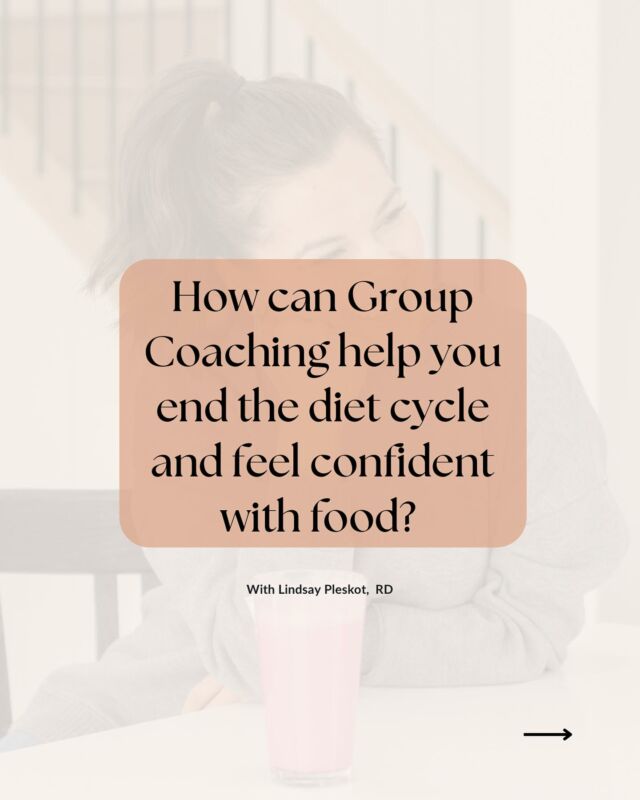Food obsession often feels like an intense preoccupation with food. This can lead to trouble concentrating or focusing on school, work, or other responsibilities, or constantly tracking and budgeting your calories or portions. If this sounds like you, we’re here to help. Today on the blog, we dive into what food obsession is, the causes of food obsession, how food obsession steals your quality of life, and 5 ways to go from food obsession to food freedom for good.

If you feel like you can’t stop thinking about food or that the majority of your waking hours involve talking about, thinking about, or planning out your meals, you might be struggling with food obsession. Food obsession may be driven biologically in response to restriction or it may be a learned behaviour that is influenced by diet culture. Food obsession can take up a ton of mental space and might be holding you back from truly living your life!
Today our guest author and Intuitive Dietitian, Ally Choo, is taking over to to share a deep dive into:
- What is food obsession
- Why am I obsessed with food
- What happens when I obsess with food?
- What is food freedom?
- What does food freedom look like?
- 5 ways to go from food obsession to food freedom for good
So let’s begin.
Off the top, we often hear these two questions come up time and time again:
Food obsession may be biologically driven when the threat of starvation is present, or it may be mentally and emotionally driven due to mental restriction of food (feeling guilty after eating or like you “shouldn’t” eat certain foods). Find more about that here.
If you’re sick of feeling completely consumed with food, we’re here to help! Here are 5 ways to go from food obsession to food freedom.
Ready to Transform Your Relationship with Food?
Explore not just what you eat but why you eat, how you feel when you eat and any patterns that affect how you feel or impact any choices you make and start your journey to food freedom today!
What is Food Obsession?
Identifying as a ‘foodie’ is one thing, but being obsessed with food is a whole other story. An obsession can be defined as ‘an idea or thought that continually preoccupies or intrudes on a person’s mind’ (source: Oxford Languages). Food obsession can manifest in many different ways, including:
- Tirelessly collecting recipes
- Difficulty concentrating on school, work, family, or maintaining relationships
- Pouring over food and recipe blogs
- Constantly tallying and budgeting macros, calories, or points
- Watching cooking shows on repeat
- Socially isolating from situations that may involve food due to fear of losing control
- Constantly thinking about, talking about, and planning what you will eat next
- Labeling foods as ‘good’ or ‘bad’ and always thinking about how you can restrict ‘bad’ foods
- Cooking meals or baking confections for others with no intention of eating the food
If you can relate to any of the above, you’re not alone! These food obsession symptoms can often socially pass under the guise of ‘wellness’ or ‘passion,’ and many people who struggle with food obsession may even find themselves in professions that feed into their obsession, including professional chefs, food journalists, and even dietitians.
What’s so profound about these disordered eating behaviours is how prevalent and socially acceptable they are in our diet culture. The image below depicts the wide spectrum of disordered eating behaviour and highlights how many of these behaviours overlap between the dieting majority and people with clinically diagnosed eating disorders.

Why am I Obsessed with Food?
So what is the difference between someone who truly has a passion for food and cooking vs. someone who is struggling with food obsession? And what exactly is driving this obsession?
Here are a few things to consider:
Physical restriction
As an evolutionary adaptation, physical restriction will trigger the brain to obsess about food. Semi-starvation, also known as dieting, will cause the brain to hyperfocus on the need for fuel, in order to keep us alive. A study conducted after World War II by American physiologist, Ancel Keys, highlights this phenomenon. The goal of this study was to explore the effects of starvation and re-feeding in order to better understand and treat starving victims in war-torn cities. Keys took a group of 36 healthy male participants who were screened and deemed to be in good physical and psychological health. During the study, the men’s diets were cut in half and restricted to ~1500 kcal/day for 6 months, and the effects were profound. During the starvation phase, the men began to exhibit many obsessive behaviors listed above, in addition to dreaming about food, watching movies about food, prolonging meals, and pouring over cookbooks. And remember, this was in the ‘40s, when men did not typically frequent the kitchen! These obsessive thoughts only subsided when the men weight-restored during the renourishment phase.
Read more here about why diets don’t work.
Mental restriction
Mental restriction can be described as allowing yourself to physically eat the “bad” or “forbidden” food, however with caveats. This might look like giving yourself pseudo permission to eat the food only if you compensate somehow, whether through exercising, fasting, or other means. Although you physically ate the food, the future threat of deprivation is still present, along with a deep sense of guilt. Labeling foods as “good” or “bad” and imposing a moral value on these foods often drives us to obsess over food. It’s in our nature to want what we can’t have, and forbidding certain foods often leads to the ‘forbidden fruit’ mentality.
Family of origin
Depending on our family of origin, obsessions with food may be a learned behavior, especially if influenced early in life. A long-term study found that parents who used food as a reward and restricted food for health reasons with children aged 3-5 years were more likely to have children who used food to cope with negative emotions in later years, compared with the control group. Learning to use food as a source of comfort early in life may impact one’s susceptibility to food obsessions in adulthood.
Ready to Transform Your Relationship with Food?
Explore not just what you eat but why you eat, how you feel when you eat and any patterns that affect how you feel or impact any choices you make and start your journey to food freedom today!
What Happens When I Obsess with Food?
Christy Harrison, RD, describes diet culture as the Life Thief. And that is exactly what it is. The Life Thief steals the precious time you have on this planet by driving you to obsess over your food rules, including what, when, and how much you can eat. It steals your joy, energy, and spark away from once in a lifetime moments – instead of truly being there you are pulled out of the present moment and into your head, listening to those intrusive thoughts. It also steals your money, with many of our clients spending thousands of dollars on products and programs that landed them right back to where they started.
Food obsession has also been shown to negatively impact our cognition. A study found that ‘successful dieters’ (those who were able to refrain from eating appealing foods when given free access) performed poorly on simple cognitive tasks compared to ‘unsuccessful dieters’ (those who allowed themselves to eat the appealing food offered) who performed significantly better. This suggests that the mental capacity it takes to restrict your intake and maintain a diet may come at a cost of your ability to perform other tasks.
Proportionately, while diet culture does not discriminate, it seemingly affects female-identifying more than male-identifying folks. This impact on cognition may shed light on the gender gap we see in leadership roles today. As Sherly Sandberg, author of ‘Lean in’ writes:
“The gender stereotypes introduced in childhood are reinforced throughout our lives and become self-fulfilling prophecies. Most leadership positions are held by men, so women don’t expect to achieve them, and that becomes one of the reasons they don’t.”
Christy Harrison, RD, also writes:
“If women are busy trying to shrink themselves, they won’t have the time or energy to shake things up. It’s hard to smash the patriarchy on an empty stomach or with a head full of food and body concerns, and that’s exactly the point of diet culture.”
If this fires you up, let’s talk about how to ditch diet culture for good and find that food freedom!
What is Food Freedom?
Food freedom means ditching the oppressive diet rules and regulations and giving yourself unconditional permission to eat all foods. Food freedom is knowing that you are the expert of your own body and cultivating body trust to eat in a way that feels good, both mentally and physically. Food freedom is having a healthy relationship with food, eating without anxiety, stress, or guilt and feeling confident in your everyday eating decisions. Food freedom is being able to choose foods based on what tastes good, feels good, and what would be satisfying.
What does Food Freedom Look Like?
Through our own personal experience and supporting many of our Make Food Feel Good community members, food freedom can look like:
- Having the flexibility and freedom to enjoy going out for dinner with friends without the guilt
- Traveling and enjoying your vacation without needing to plan out every meal
- Eating nourishing meals because it feels good and you want to, not because you have to
- Listening to your body and being able to discern between the 3 types of hunger
- Enjoying the birthday party and being present the entire time without guilt, stress, or anxiety
- Going on the date and eating the meal you want to eat with an acquaintance with ease
- Saying yes to any and all things and living your life how you want to live it!
Ready to Transform Your Relationship with Food?
Explore not just what you eat but why you eat, how you feel when you eat and any patterns that affect how you feel or impact any choices you make and start your journey to food freedom today!
5 Ways to Go From Food Obsession to Food Freedom
Now that you’re ready to take back your life, here are 5 ways to do it:
1. Adequately nourish your body
This means eating enough, and often enough, which often looks like 3 meals a day with 2-3 snacks in between. Removing the restriction will reassure your body that the threat of starvation is gone, which will help to quiet the obsessive thoughts about food. If you’re wondering ‘What is healthy eating anyway?,’ here are 10 healthy eating habits from a registered dietitian.
2. Let go of dieting rules and learn to reconnect with your body’s signals
Mindfulness is the first step to lasting behaviour change. Mindfulness is, simply put, awareness without judgment. Once you see your patterns, you can’t unsee it, and this will help uncover what rules and beliefs you’re holding onto that no longer serve you. Once we are able to stop living in our heads, we’ll be better attuned to what our body is asking for. Learning How to use the hunger fullness scale can help you learn what the more subtle forms of hunger feels like to you!
3. Give yourself unconditional permission to eat all foods
Permission is the first step to learning How to stop feeling guilty after eating. Permission allows you to let go of guilt and deprivation, and truly allows you to make empowered eating decisions. Unconditional permission to eat all foods isn’t about eating everything just because you can, it’s about allowing yourself to become aware of what tastes good, feels good (physically and mentally), and what satisfies.
One way to help foster unconditional permission to eat is to focus on neutral food talk. When we place a moral value on food by describing it as ‘good,’ ‘bad,’ ‘sinful,’ or ‘clean,’ we in turn place that moral judgement on ourselves, based on what we choose to eat and not eat. Instead, try describing food factually. This might look like describing food as crunchy, salty, or sweet. Or you might want to describe how the food makes you feel, including sleepy, energized, or bloated. This intentionality with your language will help to cultivate an All Foods Fit mentality and help to shift your beliefs away from diet culture.
4. Support your body with balanced blood sugars
When our blood sugars are out of whack, we can start to feel out of control with food. Along with eating regularly, aim to focus on balancing your meals with carbohydrates, protein, fruits and vegetables, and fat. This not only helps to manage nighttime cravings but it can also help to sustain our energy and focus throughout the day so we can focus on what’s important to us. Here are 15+ well balanced meal ideas to get you started!
5. Don’t be afraid to get support!
This work can be hard and can stir up a lot of emotions. Whether sharing how you’re feeling with family or friends, or a trusted professional like a dietitian or therapist, there is no shame in having these challenges, and when we can be open about it, it can seem a heck of a lot less daunting. That’s exactly why we created the Make Food Feel Good Program, to provide a step by step process with a ton of community and dietitian support so you don’t have to do this alone. We’re also here for 1:1 support if that’s more your style. We’re here for you and rooting for your success!
Now Over to You
- Have you ever felt obsessed with food?
- Did anything about the research surprise you?
- Any questions we missed about food obsession?
Share with us in the comments below or take a screenshot and share it with us over on Instagram! And if you found this post helpful, pass it along to a friend or family member who could benefit from it too!
Looking for More Support?
Looking for support to end the diet cycle, trust your body and learn the nutrition that feels amazing for YOU? Learn more about my Make Food Feel Good Program here where hundreds of women have found lasting success through my proven framework and step-by-step guided support. Let’s Chat!









Leave a Comment & Rate this Recipe